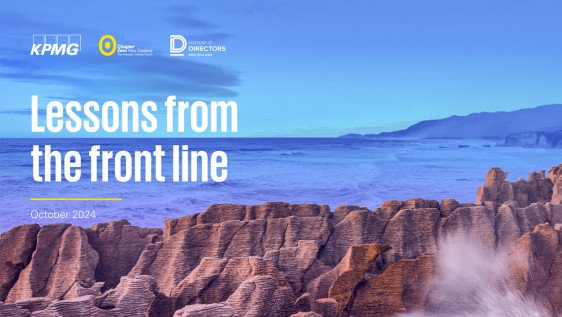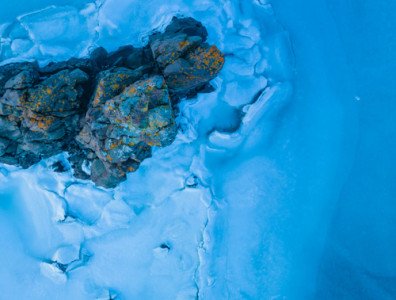Lessons from the front line
Reporting on climate change allows investors to make more informed decisions about the climate- related risks and opportunities facing the entities and sectors into which they invest.
Investors and regulators expect a company’s financial statements and climate disclosures to reflect the risks it is facing and opportunities identified, and, critically, the strategic decisions it has made to transition to a low-emissions economy.
“If we are going to be competitive, if we are going to win in the marketplace, retain and grow our market share, we need to be doing this. It becomes part of the evaluation criteria – your customers will expect it, your suppliers will expect it, your people will expect it.” – Ross Buckley CMInstD
New Zealand’s largest market participants are the first organisations in the world to complete mandatory climate reporting. Though there have been challenges in leading the way, the journey has begun, and there are lessons that can be learned whether you’re a climate reporting entity or not.
Chapter Zero New Zealand has worked with KPMG to develop Lessons from the front line through conversations with those who have first-hand experience delivering and using mandatory climate statements. Directors, preparers and users of climate-related disclosures have shared their experiences, challenges, and lessons.
The consensus is that the move to stating compliance with the Aotearoa New Zealand Climate Standards (the Standards) is a significant step up, even for those who had been voluntary reporters, and there were a lot of lessons learned along the way.
“It does what it was meant to do – it gets everyone focused on climate.” – MJ Daly CFInstD
Their advice aims to help others, whether captured by the Standards or not, to better understand what is required and how to generate value from climate reporting.
By working together, sharing learnings with other directors, and being open to the opportunities as well as the risks, New Zealand directors can be ready to unlock the benefits for the entities that they govern and lead them to get clear about how they will thrive in a climate-changed world.
“It was an investment, totally. You go through an education process. Why are we doing this? What is the benefit to our organisation, to our people and their families, to our providers? There are connections there and you need to draw them. We got that in those plenary sessions. Being typical Kiwis, we started to launch straight to the solutions — but the process gave us more discipline. It’s an agenda item for us every board meeting. We have only just started but we have some bloody good ideas.” – Paul Bell CMInstD






